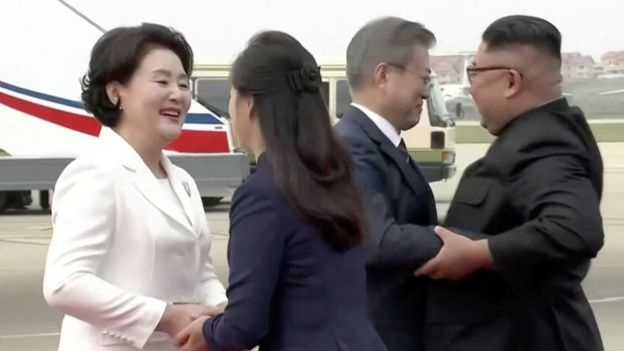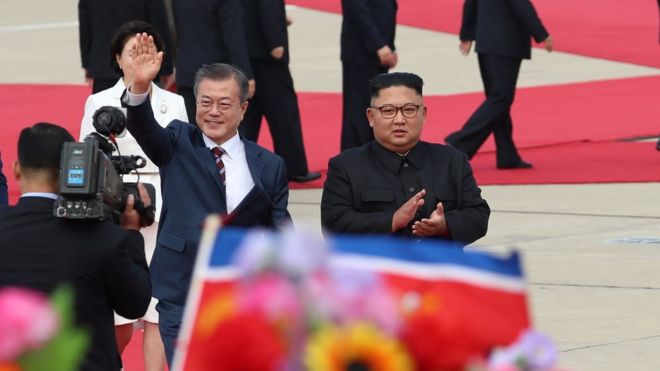Korea nuclear talks: Moon goes North to push stalled negotiations
The leaders of North and South Korea
are meeting in the North Korean capital for talks centred on the
stalled denuclearisation negotiations.
Since the beginning of the year North Korea has embarked on an unprecedented path of meetings with both the South and the US. Yet talks with Washington have reached deadlock, with both sides so far agreeing only to very general goals.
South Korea has taken on a key mediating role.
South Korean President Moon Jae-in and his wife Kim Jung-sook arrived in Pyongyang on Tuesday morning for the three-day visit.
They were warmly welcomed from the plane by Mr Kim and his wife, Ri Sol-ju.
It's the first trip to the North Korean capital by a leader from the South in a decade.
It is Mr Moon's third meeting with the North's Kim Jong-un since their historic summit at the border in April this year.
The Korean War ended in 1953 with an armistice - but no formal peace treaty was signed.
The two leaders are expected to talk about "practical measures to denuclearise" the Korean peninsula, but the specifics are not known.
For South Korea, there are two main goals:
- to further inter-Korean co-operation and rapprochement
- to act as a negotiator between Pyongyang and Washington on the issue of denuclearisation.
Otherwise, the flurry of inter-Korean summits and the much-hyped Singapore meeting between Mr Kim and President Trump this year will be seen as glossy photo ops, and the US leader may begin to lose patience, she adds.
The April meeting resulted in a joint declaration to improve ties and scale down the nuclear threat.
Since then, North and South Korea have held a reunion of families separated by Korea's division, and last week set up a liaison office at the border to allow direct communication 24/7.
This week, it's thought they will look at steps towards further co-operation. Developing the economic relationship is expected to be a key theme, but one concrete outcome could also be a scaling-down of the military presence at their border, the heavily guarded Demilitarised Zone (DMZ).
 |
| The Korean leaders and their wives greeted each other warmly on the tarmac in Pyongyang |


Comments
Post a Comment